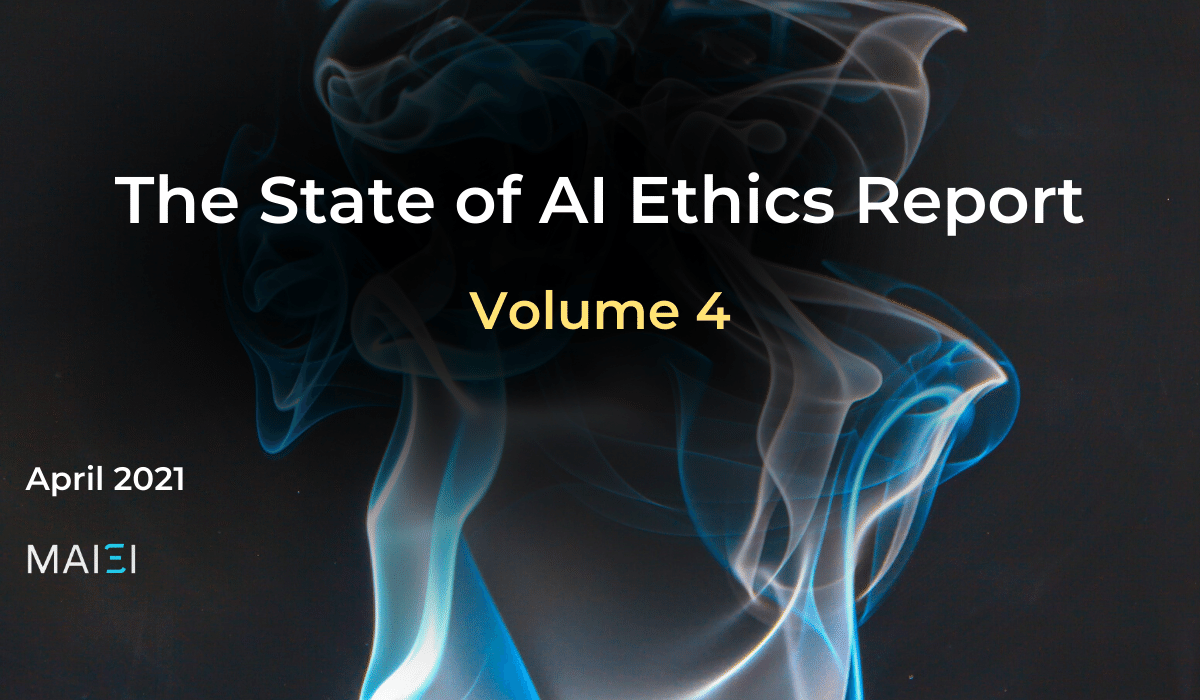
Subscribe to our weekly newsletter for the latest AI ethics research & reporting.
The State of AI Ethics Report (volume 4) captures the most relevant developments in AI Ethics since the beginning of 2021.
To save you time and quickly get you up to speed on what happened in the past quarter, we’ve distilled the research & reporting around 4 key themes:
- Ethical AI
- Fairness & Justice
- Humans & Tech
- Privacy
This edition opens with AI and the Face: A Historian’s View — a long-form piece by Edward Higgs (Professor of History at the University of Essex) about the unscientific history of facial analysis, and how AI might be repeating some of those mistakes at scale.
Other contributors include:
- Soraj Hongladarom (Professor of Philosophy and Director, Center for Science, Technology and Society at Chulalongkorn University in Bangkok)
- Dr. Alexa Hagerty (Anthropologist, University of Cambridge)
- Deborah G. Johnson (Emeritus Professor, Engineering and Society, University of Virginia)
- Connor Leahy + Stella Biderman (Leaders of EleutherAI)
- Ruth Starkman (Lecturer, Stanford University)
- Hubert Etienne (AI Ethics researcher, Facebook AI)
